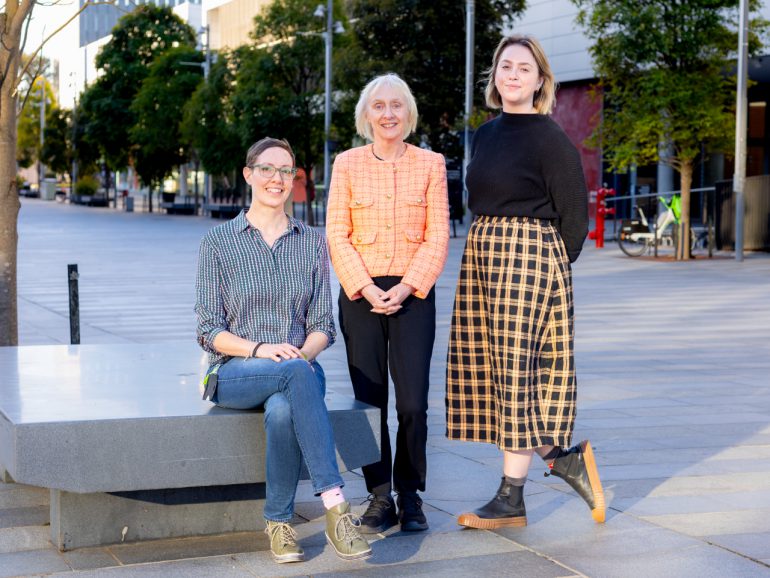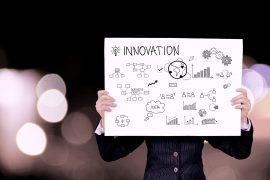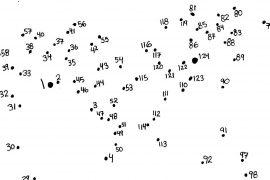Prof Joanne Wright, Deputy Vice-Chancellor (Education) joined the University a year ago as a champion of innovation in education. Innovation is a key feature of the Sydney 2023 strategy and the University’s Teaching and Learning Strategy 2023–2025, as well as being aligned with the Sydney graduate quality ‘inventiveness’. Ahead of her opening address at the 2023 Sydney Teaching Symposium, we had the chance to chat with Joanne about some of the ways in which innovation is needed and can be supported, recognised and rewarded at Sydney.
Find out about the 2023/2024 Strategic Education GrantsAlix Thoeming: One of the first things you started work on straight away was the 2032 Strategy, one of the key points of which is the importance of delivering a transformative education for all our students. When you spoke at the Sydney Teaching Symposium in 2022 you highlighted the role of innovation in delivering that at Sydney. So we’d like to ask you, one year on, how are we operationalising that, and how you see the work that’s being done across the university as feeding into that vision of transformative education?
Joanne Wright: During the past year I’ve had the chance to see some of the wonderful innovations that are going on—we’ve got some fabulous stuff going on in first year Chemistry, looking at how to manage big courses; there’s some great stuff going on in capstone History to help people live history; and we’ve got some really interesting planning going on in the Business School around space usage and large classes.
This is great to see, especially as it’s been a difficult time in which to try and be innovative. One of the things that affected the pipeline for innovation at Sydney, as in many other institutions, was COVID-19 and the withdrawal of support for things like innovation teaching grants. So it’s been really important for me to get those grants restored in some way. We’re hoping these grants will be multi-year, because I’m very conscious that it takes time to develop projects and recruit the right people. We’re also hoping that some of them will offer a bigger pot of funds to draw on, to allow people the resources, scope and time to really concentrate on being innovative, because some of the challenges we have require experimentation and innovation to land the right solutions.
Of course the thing that even a year ago I did not foresee was the rapid development of AI, and particularly ChatGPT. I want to give an enormous shout out to many of our academics, and particularly Adam Bridgeman and Danny Liu, who have managed to establish us as pretty close to the national cutting edge on this. We’re ahead of the game in conceptually thinking about AI, and now we need to get that innovation into the classroom, including innovation in our assessment. I’m looking forward to the education innovation grants supporting that work.
Alix: You mentioned Chemistry just now—generally their large and innovative programs are led by education-focused academic staff who are well-supported and receive a great deal of recognition for their work. How can we work towards replicating that approach more widely across the university?
Joanne: I am so happy you asked me that question because right now we have a unique opportunity at Sydney to really inject the sort of support and energy that you are talking about across the institution. The 2023-2026 Enterprise Agreement allows the injection of a really significant new resource into the university in terms of both education focused and teaching and research staff to work with students.
And I’m really keen on co-creation with students—if we just listen to students, they can often articulate the solution for us. We had some students make a presentation to academic board and Senate about how they were using AI and it was fantastic. We have signed the students up to work with us, so we’re learning from the students, and this is part of innovating in partnership with students. Through work that we are doing, particularly with Advanced Analytics and Planning, we are also starting to narrow down what holds Sydney back in the national league tables—and it is mostly the classroom experience. So getting that injection of resource and innovation and energy is a once in a generation opportunity, and we’ve all got to work together to make sure we make the most of it.
Alessandra Wollaston: So thinking about a culture of innovation, what are the key features of an educational culture of the kind of freedom and creativity and experimentation, risk taking and failure, which you inspired us with at last year’s Symposium?
Joanne: First of all, we have to include innovation in our recognition and reward systems. That doesn’t necessarily always mean promotion, but it should be able to mean promotion. And we need to be pulling people through for awards, including for national awards. Part of it is making sure we have that innovation pipeline and the support, because it can often take several years to build up the evidence base you need to be a strong contender for a national award.
We need people to feel that teaching innovation is valued as much as research innovation. I really think that should be our aspiration, and we should be talking to people about what is needed for us to get there.
We also need to be a bit more tolerant of risk and failure. Sydney is quite risk averse, so I do think there has to be a culture of a higher tolerance of risk and an absolutely higher tolerance of failure. And I am happy to lead by example! There are many things that I have tried that haven’t quite worked in the way that I hoped they would work. But I live with that by knowing that I did the due diligence and I made the decision not trying to harm anyone. So, take the risk.
That also extends into innovation in assessment. We’re very focused on assessment for credit, which makes us reluctant to innovate and take risks, leaving the students then reluctant to take risks. So there’s work to do in innovation on assessment—perhaps a little bit more formative, a little less summative and a little less total. AI is also going to force us down that route a bit, so I hope folks are thinking about assessment—it’s an area that a couple of our innovation grants might go towards because it’s an institutional and a national priority.
Alix: This sudden explosion of generative AI has been a particular challenge for those of us who aren’t already teaching about or with the technology. Many teaching staff, as well, are feeling that their pre-AI workload was more than full enough. How is the University supporting staff in terms of the tech becoming more friend than foe?
Joanne: Going back to this injection of over 200 education focused academics—it’s significant, and if they are targeted in the right areas it should help relieve the pressure. But it won’t completely remove it, and I get that people feel overworked, because our systems aren’t great and they’re not as integrated as they might be, and people have to spend more time in administration. So administration might be one of the ways to help people engage with this technology, because co-pilot AI will be in everybody’s productivity tools in the next few months and its abilities could save people a phenomenal amount of time. It’s not perfect, and our people are smart enough to know it’s not perfect, but just having it on our machines is likely to provoke curiosity, because we’re basically curious beasts. But we do need to back that up with formal support, and I know many academics are working with us on that, and so are the Provost, VP Operations and Research portfolios to make sure that we are covering all areas of the university—operations, teaching and research.
Alessandra: Thanks Joanne, it’s been great to chat, is there anything else you’d like to add?
Joanne: I do want to reiterate the wonderful opportunity we all have with the injection of this resource of education focussed staff, with the new Teaching and Learning Strategy 2023–2025, with the MySydney scheme—all part of Sydney 2032—to really, really deliver a transformative education. And if we can do that, we are securing this institution for the following 50 years. That is us meeting some of our obligations to sustainability, to produce the next generation—well educated, with great experience, utilising technology sensibly with humans at the wheel. It’s just fabulous! Makes you get up in the morning, even these cold winter mornings!




